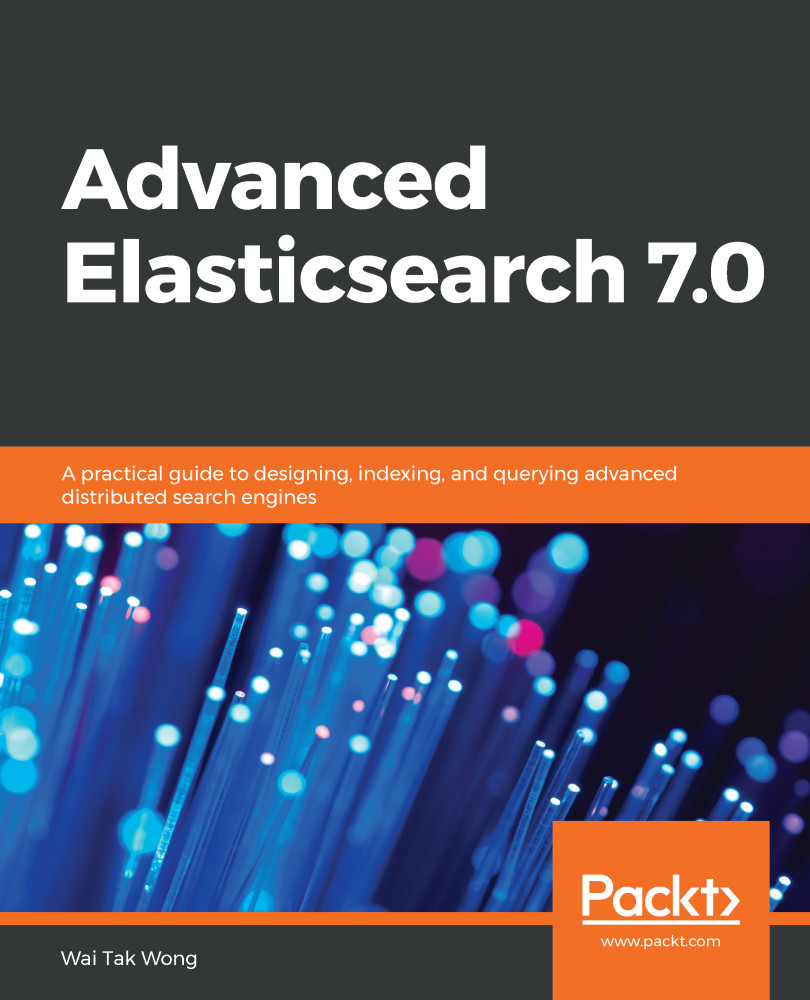You will recall that we have introduced 314 exchange-traded funds (ETFs) provided by TD Ameritrade. We are going to index those documents in this chapter. In our GitHub repository (https://github.com/PacktPublishing/Mastering-Elasticsearch-7.0/tree/master/Chapter6), you can download two files, cf_etf_list_bulk.json and cf_etf_list_bulk_index.sh. You need to make the bash file runnable and then you can run it to index those documents. The commands to issue are specified here. Before you issue the following command, make sure your cf_etf index is recreated with the static mappings and the custom analyzer. If not, delete the index and recreate it:
$chmod +x cf_etf_list_bulk_index.sh
$./cf_etf_list_bulk_index.sh
After the command runs successfully, we can use the Postman API to issue the count API to verify the number of indexed documents. The total number...


